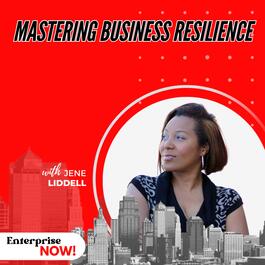
Join Elzie Flenard in a dynamic conversation with Jene Liddell, the seasoned business management consultant from Resilience Consultancy. Jene unveils her unique approach of "stealth consulting" that promises to revolutionize the way you streamline business operations. Discover the delicate balance between expertise and experience, gaining enlightening perspectives on the true value of consultants. Delve into the intricacies of goal-setting and operational streamlining, where Jene shares insights on handling customer complaints and identifying key players in your business process. Explore the world of process optimization, specifically in debt management, and unravel the significance of training and auditing for standardized processes. In a deeply personal segment, Jene recounts her resilient response to significant business changes. Learn about the importance of self-grace, positive symbolism, and strategic planning when navigating pivotal moments. This episode is a treasure trove of practical advice and valuable tips for any business owner looking to enhance their resilience. Tune in and embark on the journey to master your business resilience! Episode Highlights: 05:59 - So, when it comes to solving problems in a business, I believe in solving them within. So asking your employees, the people that are on the ground, what do you think will make this more efficient? What do you think will make this process better? Because they know. They work with the machines, they work with the material, so they know what would make it better, better than some consultant that you just brought in and think they know everything. 12:11 - When you get a customer complaint, it usually has to do with a process, like you didn't do something efficiently, you didn't return this item, this item was faulty, something like that. Or this service - this service took too long, I booked my appointment, my time got taken, something like that. So, anytime there's a complaint, it has to do with the process. And people just try to be like, "Okay, we'll give you a credit, we'll give you this, we'll give you that." But they never really look at what is the real problem. The problem is in the process. It's how we're doing things. Because if we were doing things the right way, this wouldn't have happened, basically. 17:30 - I said before, the standard operating procedures. So, once you have like a written manual of the steps of each process, you can show somebody once, you can give them the book, and then they can do it themselves. That cuts down training time. That cuts down training costs. But a lot of people don't do it that way. They do it the, well, watch me do this for a couple of days and then you'll just catch on. Like, it's not assimilation. People don't just catch on. I mean, I know every job that I went to, crazy enough, I would write notes when I was training, and people thought I was crazy because I was the only one writing notes. No, I need to know this like the back of my hand. I don't want to have to ask you every time. That's just the key. Just writing stuff down and training so that somebody else can see it so they don't need you to actually delegate it. 26:50 - I got my name, so I was like, okay, this is my name. And then from there, I started, "What does this name mean? Resilience." Resilience, when I thought about that, it was a sunflower growing out of cracked concrete cement. And it's resilient because it can still grow out of that. It can still flourish. So, you have to think of it that way. Like, how can I pivot to make better, what steps I need to take? And I write down everything. I write down the steps to everything. And then if it doesn't go as planned, like I said, but at least I have some steps to go by, a guide. Ready to Master Your Mindset, Mission, and Message? If today’s...
From "Journey To Mastery"


Comments
Add comment Feedback